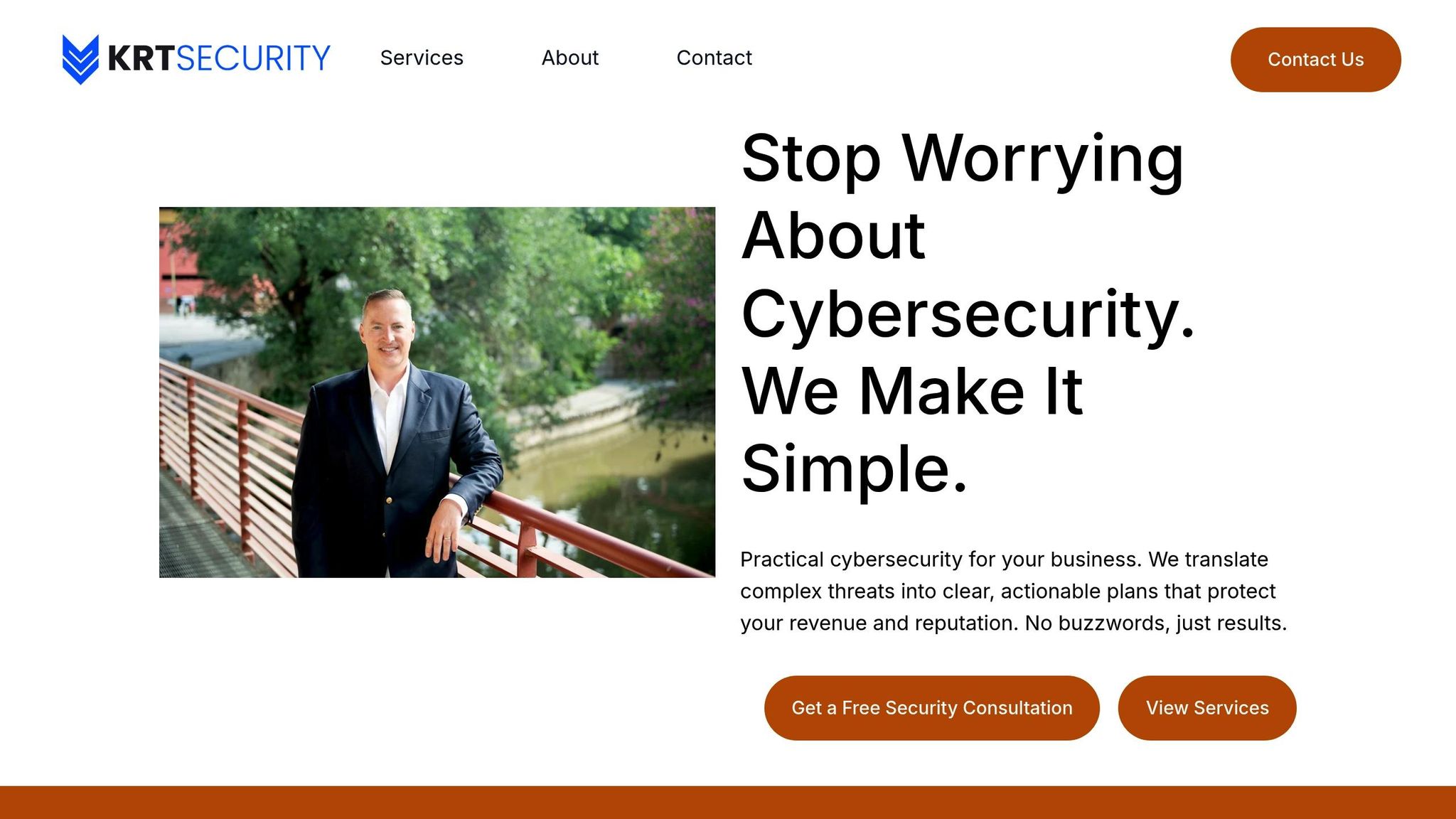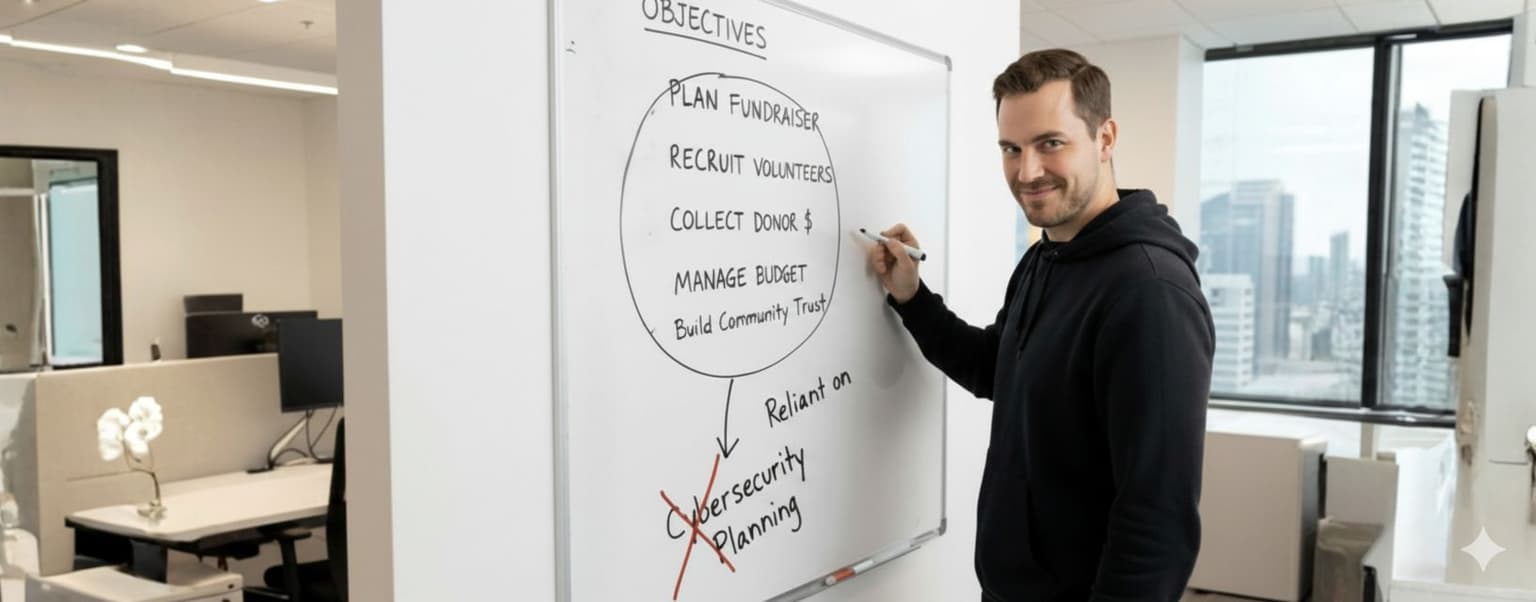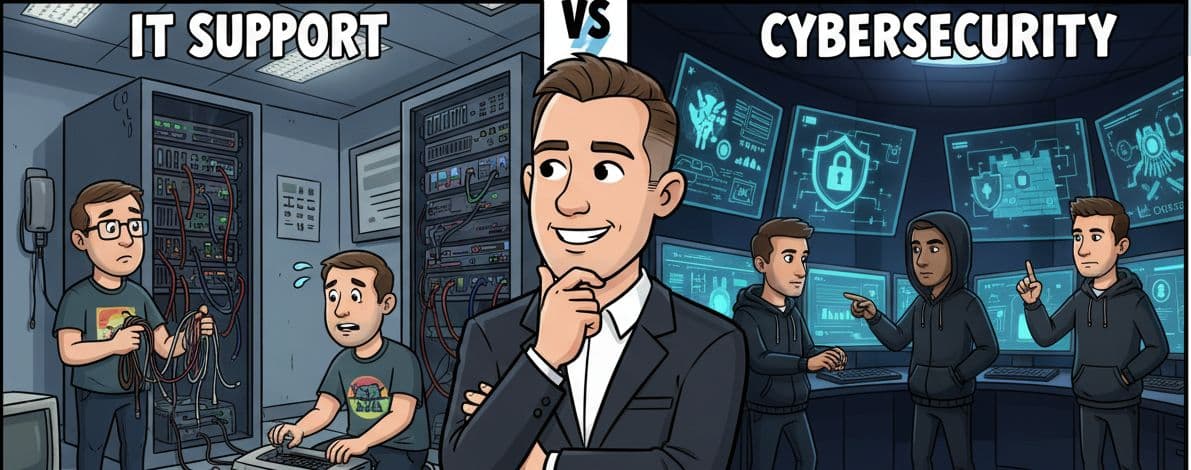
Does My Non-Profit Need to Worry About Hackers?

If you run a non-profit, you might think you’re too small to be a target for cybercriminals. The truth is, your non-profit is a very attractive target. Hackers aren't just after big corporations; they are after the valuable information you hold.
Criminals know you handle sensitive donor and client lists, which they can sell. They also know you rely on donor trust, which they can use to send fake emails to your supporters. Because you focus your budget on your mission, they hope your digital security is an afterthought.
The Real Cost: It's More Than Just Money
A cyberattack isn't just a technical problem; it's a business problem. The biggest cost isn't fixing a computer; it's the loss of trust. If your donor data is stolen, that trust is broken, and it's incredibly hard to get back.
An attack also stops your mission in its tracks. Imagine your donor database is locked, your email is down, and you can't access your files. For a non-profit, that means services stop, donations can't be processed, and your entire operation grinds to a halt.
Three Simple Ways to Lock Your Digital Doors
The good news is that basic data protection doesn't have to be complicated. You can make a huge difference with a few simple steps.
- Use Better "Keys": Think of a weak password like leaving your office key under the welcome mat. Use long, unique passwords for every account. Even better, turn on "multi-factor authentication" (MFA), which is like needing a key and a special code to get in.
- Spot the "Con Artists": The most common way hackers get in is by tricking you or your staff. They send fake emails that look real, trying to get you to click a bad link or give up a password. Train your team to be skeptical and to double-check any strange requests.
- Make a "Safety Copy": If a hacker locks up all your files, what's your plan? A backup is just a secure copy of all your important data stored in a separate, safe place. If the worst happens, you can restore your information and get back to work.
Knowing When to Call a Specialist
Those simple steps are a great start. But as your organization grows, it's hard to know what you don't know. Think of it like your office building. You lock the doors, but you hire a building inspector to check for hidden problems like a weak foundation or bad wiring.
A cybersecurity specialist does the same for your digital "building." They don't just check the locks; they find the hidden weak spots before a criminal does.
At KRT Security, we provide this clarity for San Antonio businesses and non-profits. We skip the confusing jargon and focus on practical steps. Our services are about:
- Giving you an expert guide (like a part-time security director) to help you make smart decisions.
- Safely testing your digital locks to see if a criminal could get in.
- Finding and fixing weak spots in your system on a regular basis.
- Checking your physical site to make sure your office security and digital security work together.
Protect Your Mission, Not Just Your Data
Protecting your non-profit cybersecurity isn't about becoming a tech expert. It's about taking practical, common-sense steps to protect your mission, your reputation, and the donor trust you've worked so hard to build. You don't have to do it alone.
Common Questions from Owners and Directors
How can I tell if my non-profit is being targeted?
You might see a sudden rise in strange emails to your staff. Other signs include seeing failed login attempts from places you don't recognize or if your website suddenly becomes very slow or goes offline. Trust your gut; if something feels "off," it's worth looking into.
We have a tight budget. How can we afford cybersecurity?
The most effective steps are often the cheapest. Training your staff to spot fake emails costs very little but has a huge impact. Using strong passwords and turning on multi-factor authentication (which is often free) are your strongest defenses. The cost of these simple steps is tiny compared to the cost of a single breach.
We already have an IT person. Isn't this their job?
Your IT person is essential for keeping your systems running, like a general contractor who keeps the lights on. A security specialist is like a building inspector. They have a different, specialized skill: to proactively hunt for weaknesses and stop a break-in before it happens. They work with your IT team to make your organization safer.
sbb-itb-2ce6bbc
How KRT Security Can Help Protect Your Mission

KRT Security is dedicated to making cybersecurity expertise accessible to nonprofits that need protection but don’t know where to begin. With over 20 years of experience, Kris Trumble and the KRT Security team understand the unique challenges nonprofits face.
Their approach is simple yet effective: they collaborate with your existing IT team rather than replacing them. While your IT provider focuses on daily operations, KRT Security steps in with specialized services like independent security reviews, risk assessments, and tailored guidance.
Here’s what they offer:
- Comprehensive risk assessments to identify vulnerabilities in your system.
- Penetration testing to simulate how hackers might exploit those weaknesses.
- Virtual Chief Information Security Officer (vCISO) services for ongoing security leadership and strategy.
KRT Security provides clear, actionable recommendations that align with your budget and mission. They help you prioritize the risks that matter most and create a practical plan to address them.
Most importantly, they bring peace of mind. Instead of losing sleep over donor data safety, you’ll know your nonprofit has strong defenses in place. Partnering with experts like KRT Security allows you to focus on what truly matters - advancing your mission with confidence.


